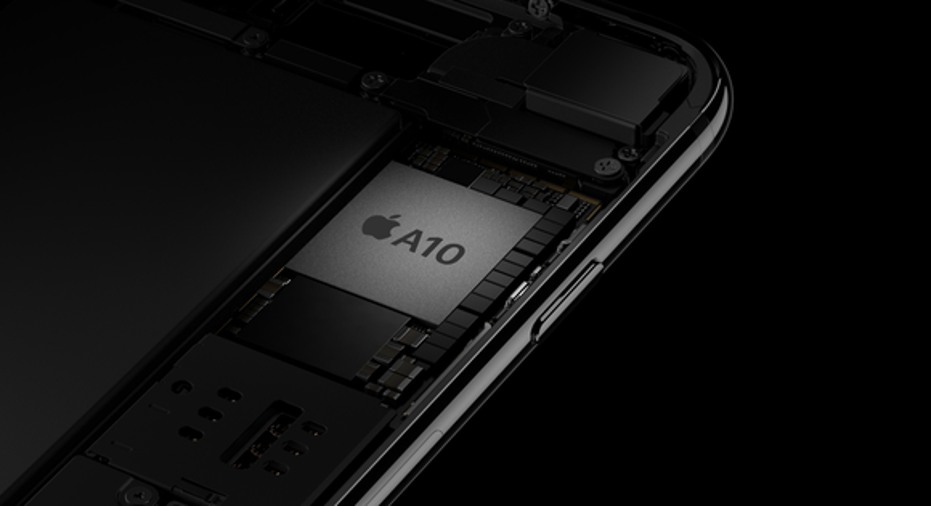Apple Ditching Imagination Technologies Should Scare NVIDIA and AMD

Earlier this week, Apple (NASDAQ: AAPL) graphics technology supplier Imagination Technologies disclosed that it had been notified that Apple is planning on dropping the company within the next two years. Shares of Imagination lost two-thirds of their value that day, which isn't all that surprising given Apple accounts for fully half of all revenue. While there are some legal uncertainties surrounding whether or not Apple can actually craft its own GPU architecture without infringing on any of Imagination's intellectual property, if the Mac maker pulls it off, its A series of chips would become even more vertically integrated than ever before.
That should scare Apple's current discrete GPU suppliers for the Mac, NVIDIA (NASDAQ: NVDA) and AMD (NASDAQ: AMD).
The bad news
There's been no shortage of debate over the years about the possibility of Apple ditching Intel (NASDAQ: INTC) as the main CPU supplier for Macs. Apple switched to Intel a dozen years ago, and Apple introduced its first proprietary chip, the A4, seven years ago. As Apple continues to make progress with making its A series of chips increasingly more powerful, it approaches a day when it could conceivable transition to its own designs. The most recent A10 Fusion is already comparable to low-end Intel chips in terms of performance.
Image source: Apple.
The same threat exists for NVIDIA and AMD. Apple cyclically switches between the two GPU specialists, with AMD currently enjoying Mac design wins wherever discrete GPUs are necessary (15-inch MacBook Pro, 27-inch iMac 5K, and Mac Pro). But NVIDIA scored the last cycle, and could very well win the next one. Given Apple's clearly expanding graphics ambitions, it will naturally target integrated graphics architecture first, like what A chips currently use. The possible progression is this: Apple eventually supplants Intel for CPUs with integrated graphics by using its A chips, and then way farther down the line considers making discrete GPUs for high-end applications.
To be clear, these possibilities are far in the future. It's going to be a long time until A chips can compete with high-end Intel chips on performance, and an even longer time until Apple could even conceivably compete with high-end discrete GPUs from NVIDIA and AMD. But the point is that this is all potentially in Apple's long-term road map, in which case it's a risk that NVIDIA and AMD (and their respective shareholders) must acknowledge.
The good news
Fortunately, both companies continue to diversify away from the discrete GPU market. Much of NVIDIA's share gains over the past year are primarily attributable to progress in autonomous driving technology, artificial intelligence, and data centers. Gaming still represents nearly 60% of revenue, but the other segments are all putting up strong double-digit growth (or triple-digit growth, in the case of data centers).
AMD has been focusing on the game console market, and its processors power both the PlayStation 4 and Xbox One. These semi-custom processors, along with the enterprise and embedded business, now represent the majority of sales (54%), and it's even profitable too, unlike the computing and graphics segment that includes Apple's business.
NVIDIA and AMD have plenty of time to continue diversifying their businesses, but eventually (i.e., potentially 10 years or more) Apple might ditch them, too.
Find out why Nvidia is one of the 10 best stocks to buy now
Motley Fool co-founders Tom and David Gardner have spent more than a decade beating the market. (In fact, the newsletter they run, Motley Fool Stock Advisor, has tripled the market!*)
Tom and David just revealed their ten top stock picks for investors to buy right now. Nvidia is on the list -- but there are nine others you may be overlooking.
Click here to get access to the full list!
*Stock Advisor returns as of April 3, 2017
Evan Niu, CFA owns shares of Apple. The Motley Fool owns shares of and recommends Apple and Nvidia. The Motley Fool has the following options: long January 2018 $90 calls on Apple and short January 2018 $95 calls on Apple. The Motley Fool recommends Intel. The Motley Fool has a disclosure policy.



















